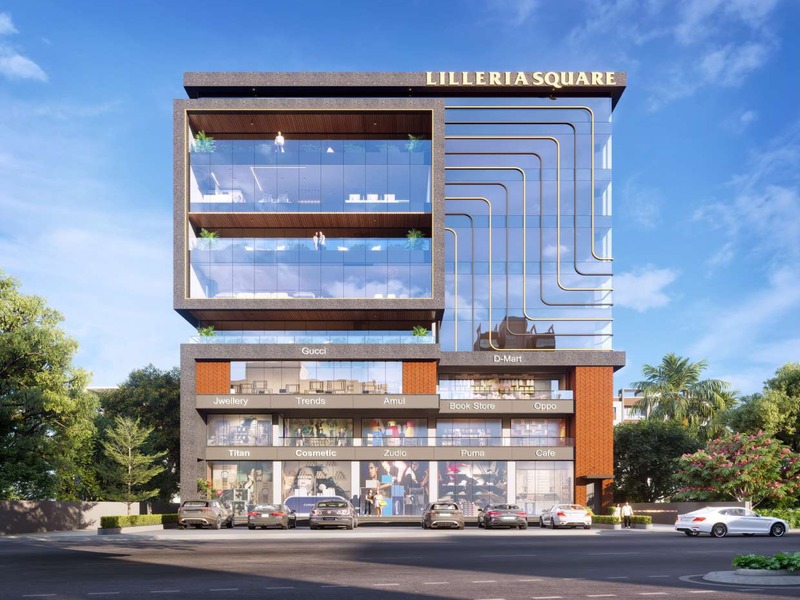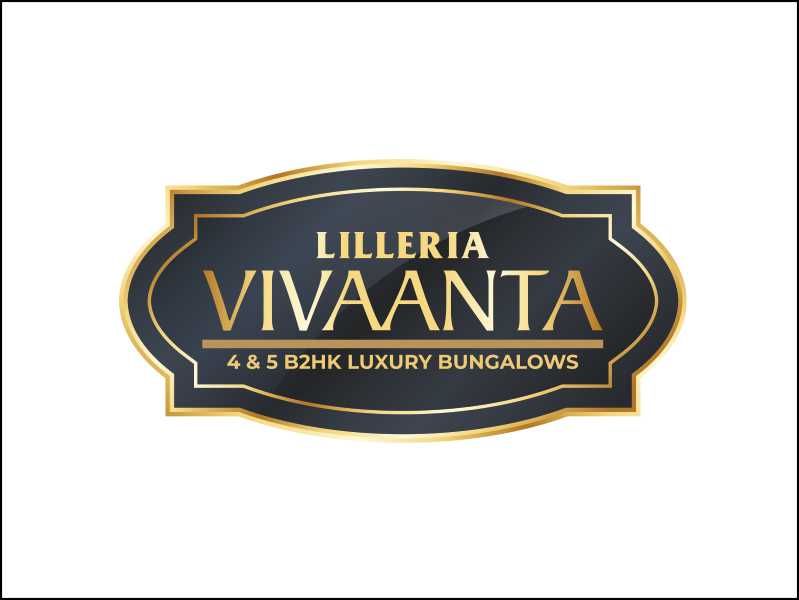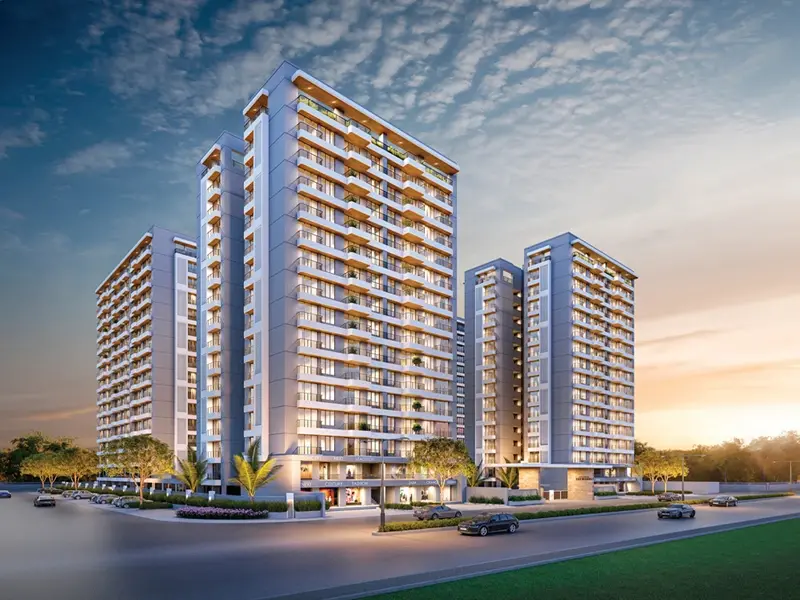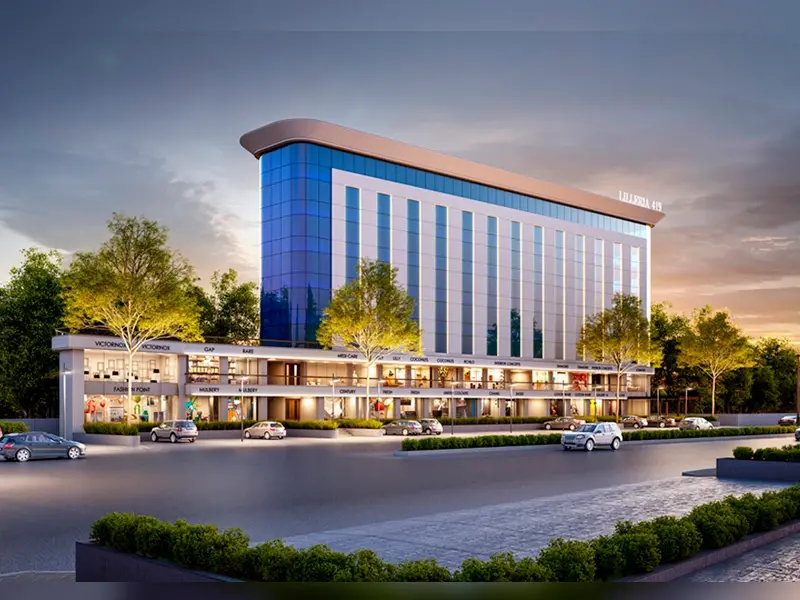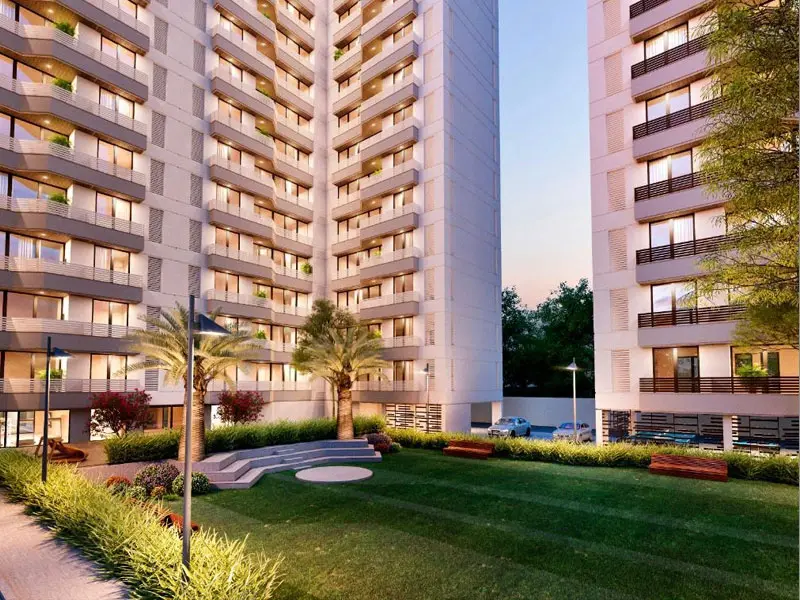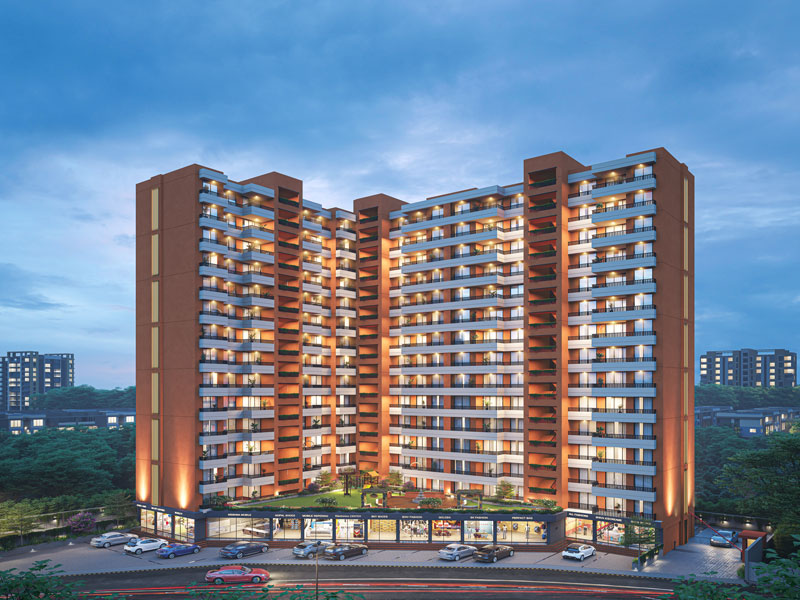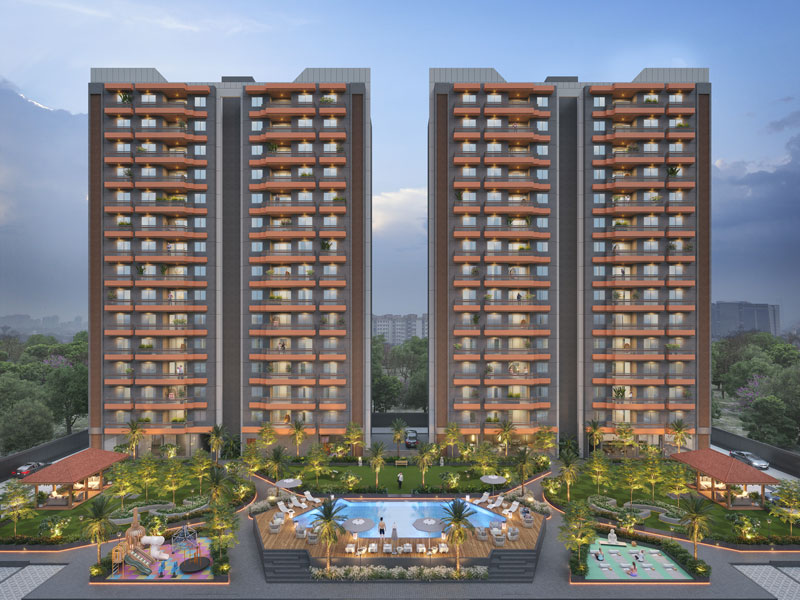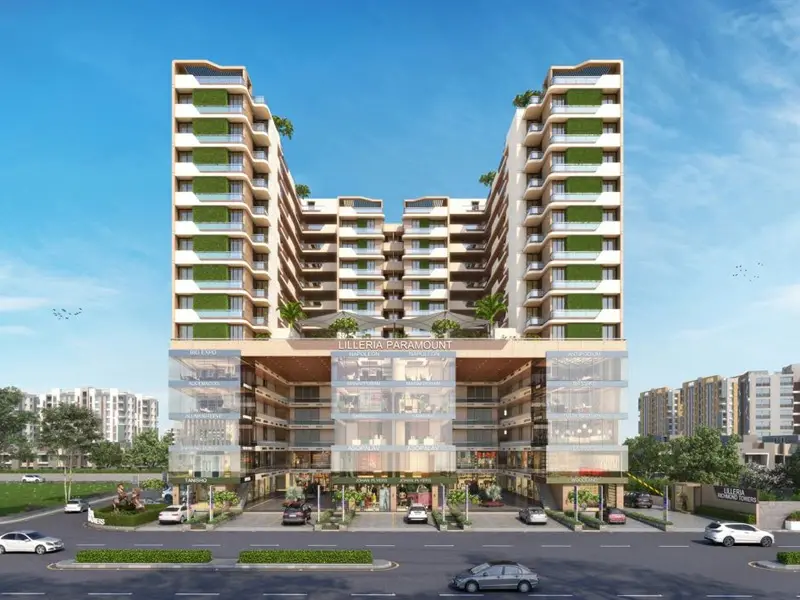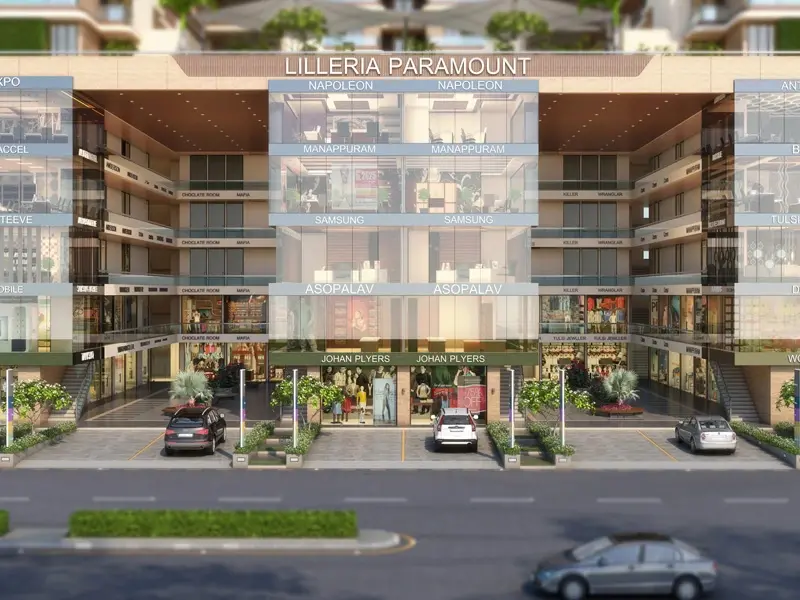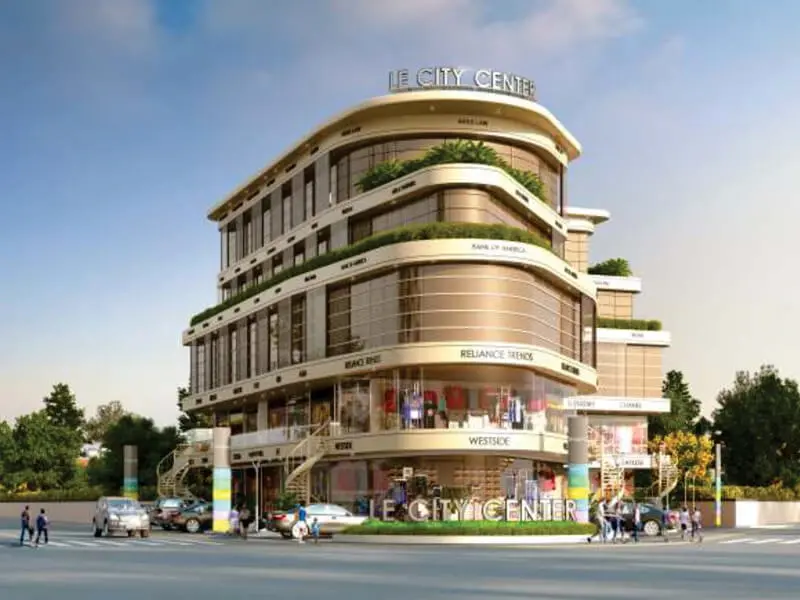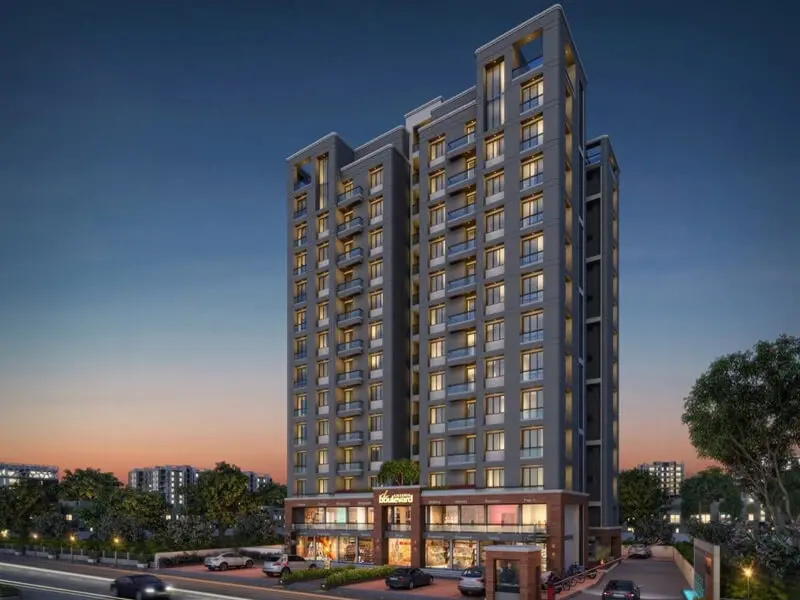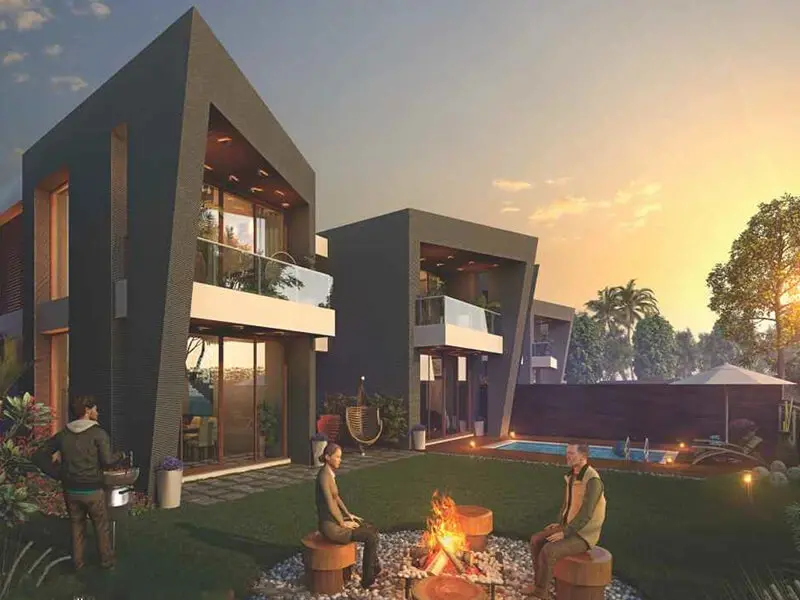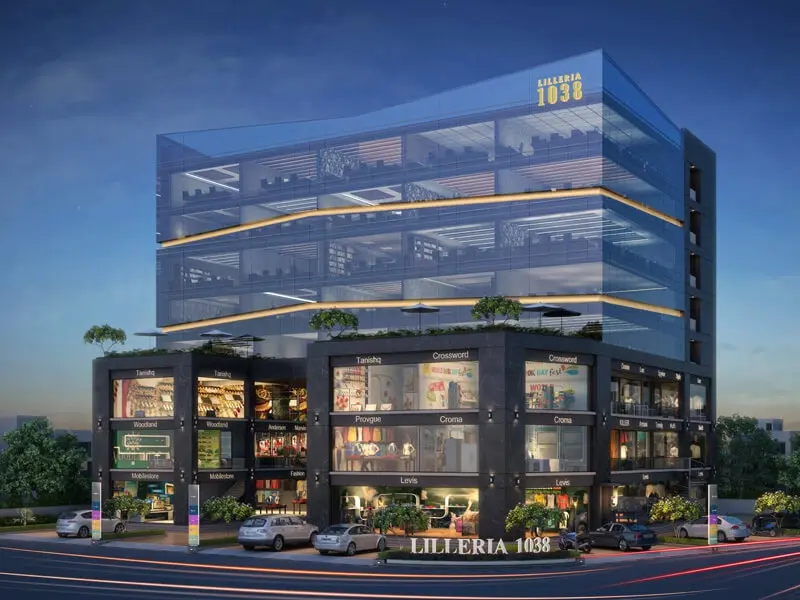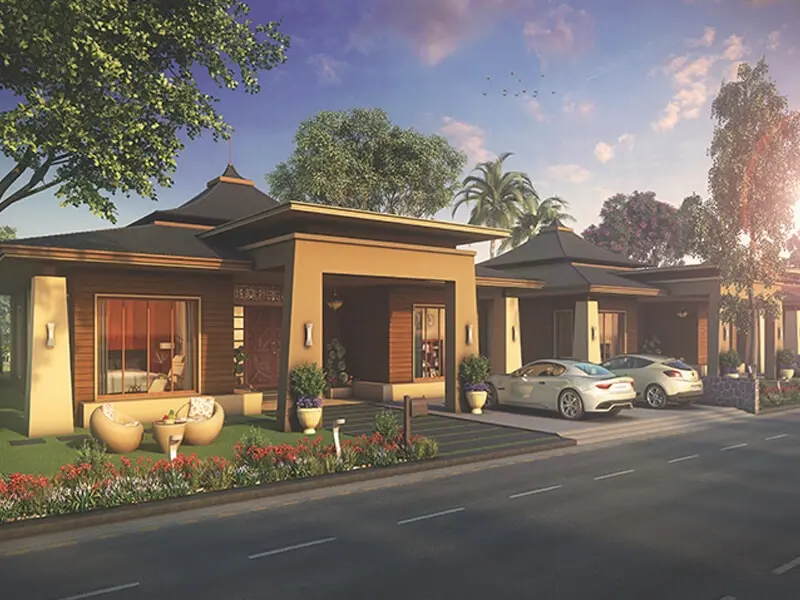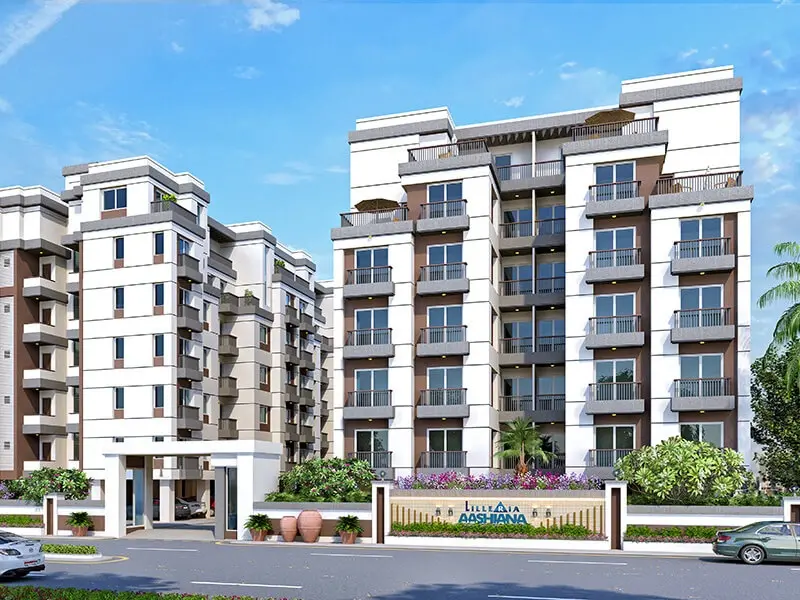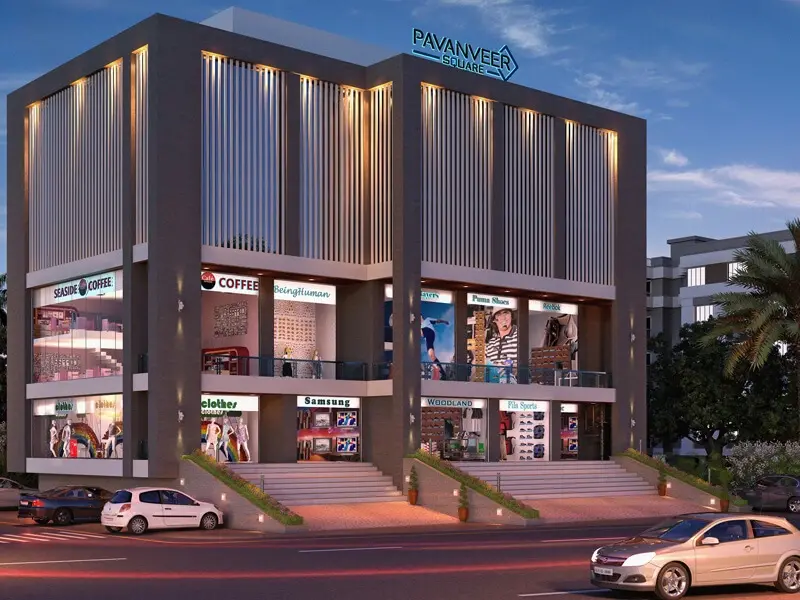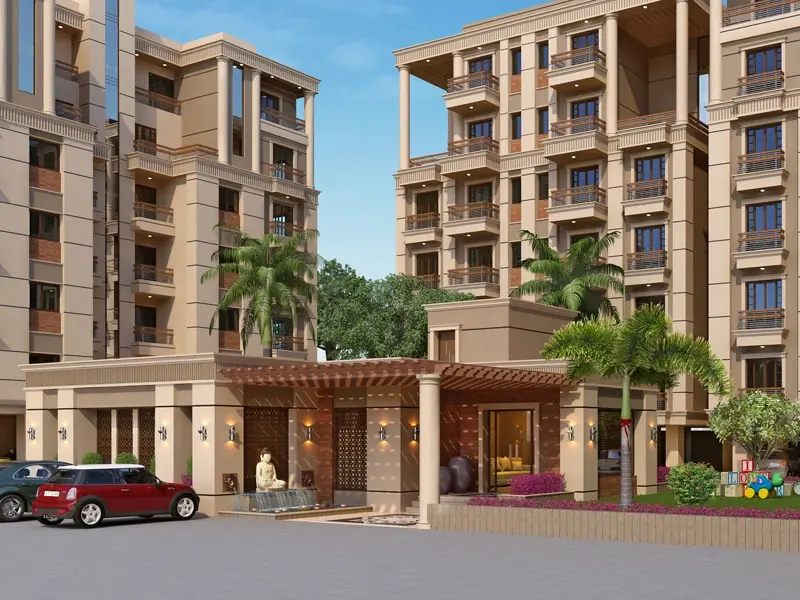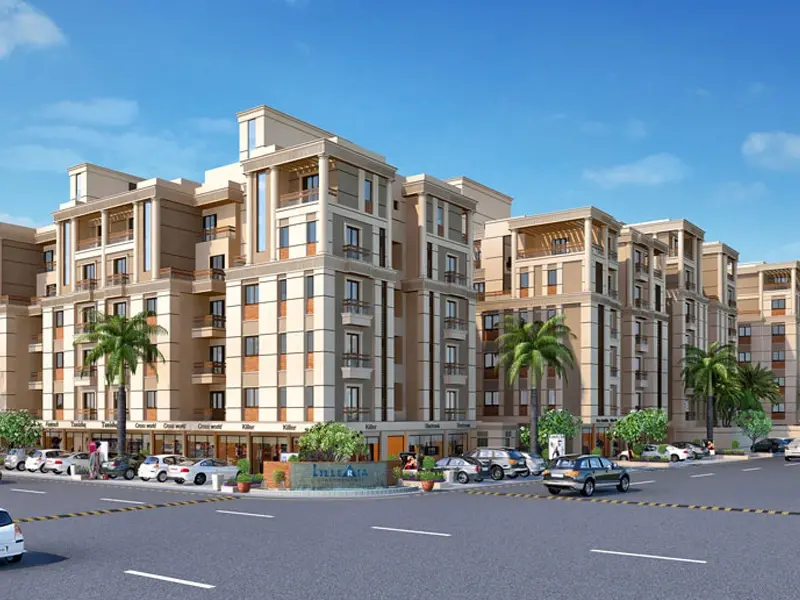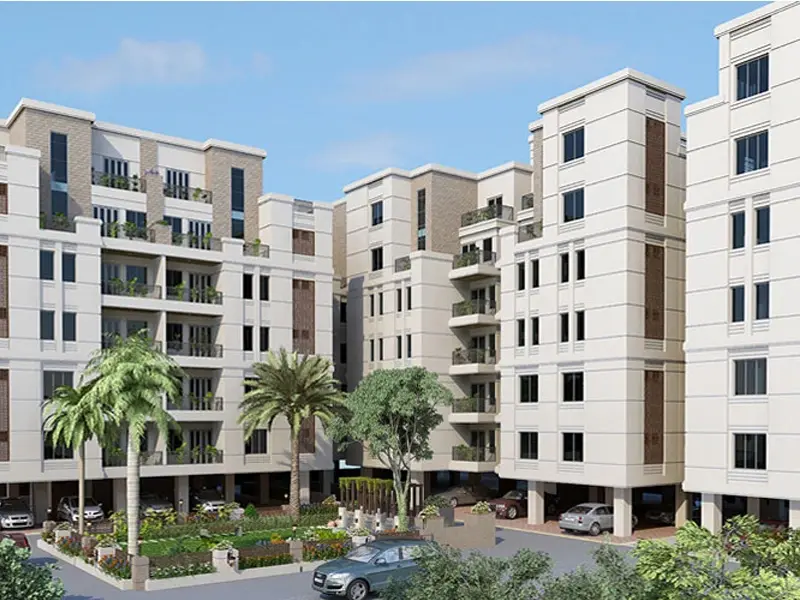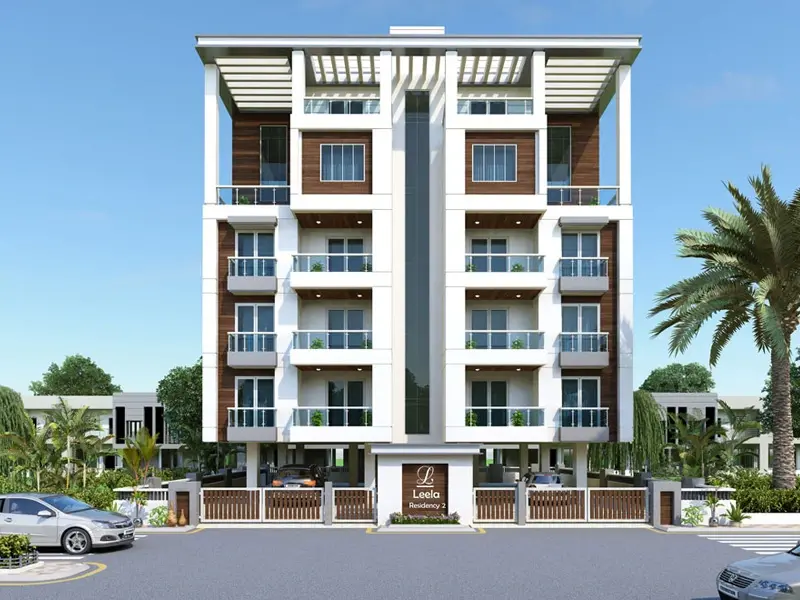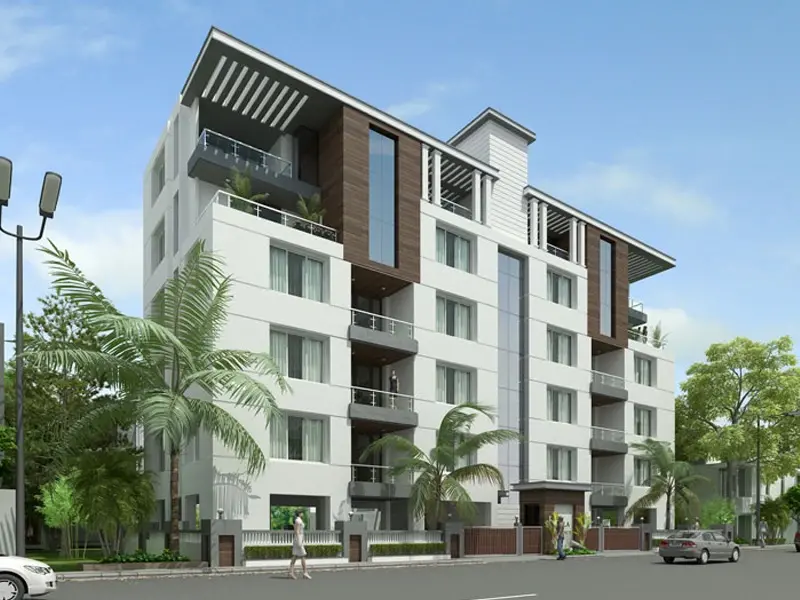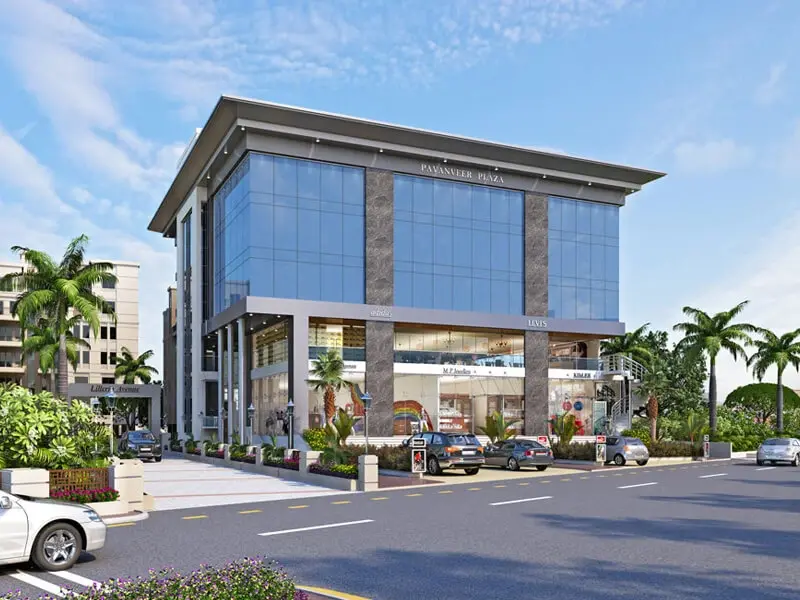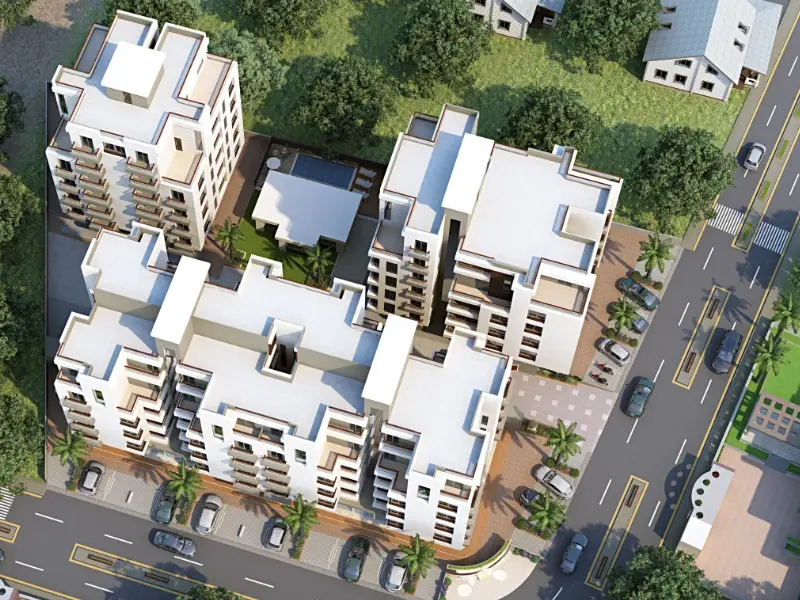Real Estate
Previously known as Samanvay Builders, Lilleria Developers LLP has been redefining the real estate industry since 1988. Pioneers in gauging the changing trends, Lilleria has established itself as one the leading and trusted developers of Gujarat.
First to introduce the concept of gated communities and winning accolades from the Government, the Company has stayed true to its promise of innovation since inception. Catering to the rising demand of quality residential and commercial development in Vadodara, Lilleria established several architectural landmarks in the city.
Residential
Commercial
Weekend Homes
Industrial
Investments
Build to Suit
As experts in the industry, we are dedicated to helping you find your perfect property. Starting from residential, commercial, investments to industrial needs, we have an extensive portfolio to cater to your unique needs.
Our team of experienced professionals is committed to providing exceptional guidance and support throughout your real estate journey. With a focus on transparency and integrity, we strive to make the buying, selling, or renting process as seamless and rewarding as possible. Through its commitment to quality and innovation over the last 29 years, the Company has won the lasting trust of its customers.
Past Projects
LILLERIA APARTMENTS 1
2,3,4 BHK Flats & Penthouse
Sama Savli Road, Opp IOCL Petrol Pump, Sama, Vadodara
LILLERIA APARTMENTS 2
2,3,4 BHK Flats & Penthouse
Sama-Savli Road, Next to Lilleria Party Plot, Near MacDonald’s, Vadodara.
LILLERIA AVENUE
EXCELLENT CRAFTSMANSHIP AND ELEGANT DESIGN, LILLERIA AVENUE
Sama-Savli Rd, Vemali, Vadodara
LEELA RESIDENCY II
LUXURIOUS INTERIORS, ELEGANT EXTERIORS, A WIDE RANGE OF
New Gotri, Vadodara
LEELA RESIDENCY I
THE 8 ULTRA PLUSH RESIDENCES THAT GIVE YOUR LIFESTYLE A NEW
New Alkapuri, Vadodara
LILLERIA APARTMENTS
2, 3 & 4 BHK Flats, Penthouse & Shops
Sama - Savli Road, Next to Lilleria Party Plot, Near MacDonald’s, Vadodara.
Rent Or Sell Spaces
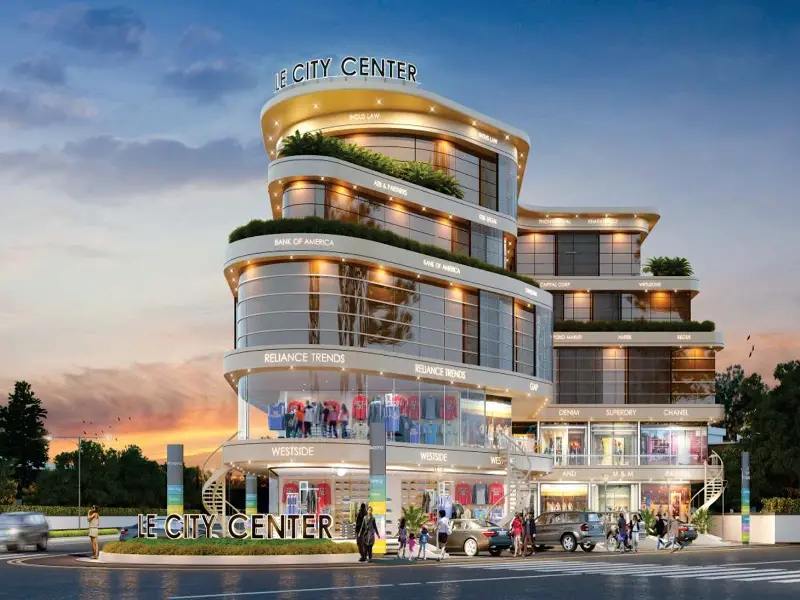
LE City Centre (Diwalipura)
Ground Floor
Shop & Showroom for rent or sell
Super Built-up - 469 Sq.ft onwards
First Floor
Shop & Showroom for rent or sell
Super Built-up - 391 Sq.ft to 1106 Sq.ft.
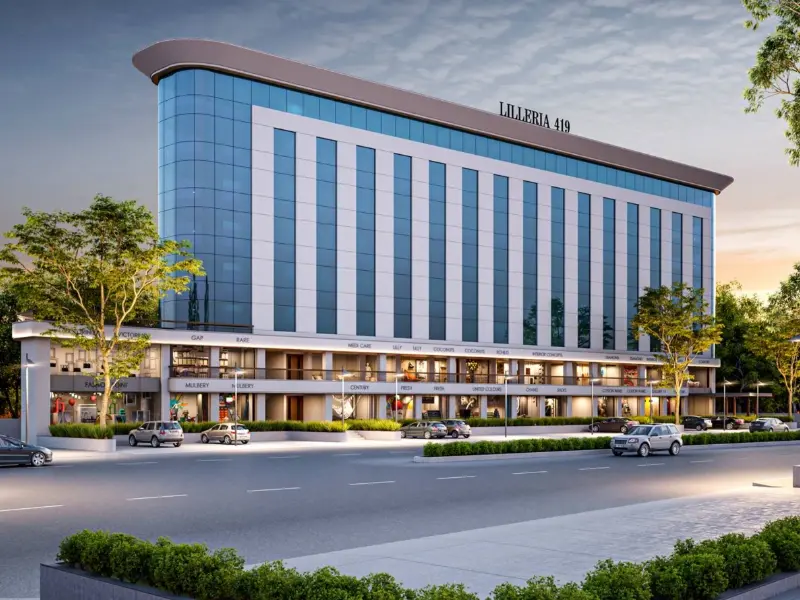
Lilleria 419
2nd Floor
Shop & Offices for rent or sell
Super Built-up - 375 Sq.ft to 745 Sq.ft.
3rd Floor to 7th Floor
Shop & Offices for rent or sell
Carpet Area - 2500 Sq.ft to 35000 Sq.ft.
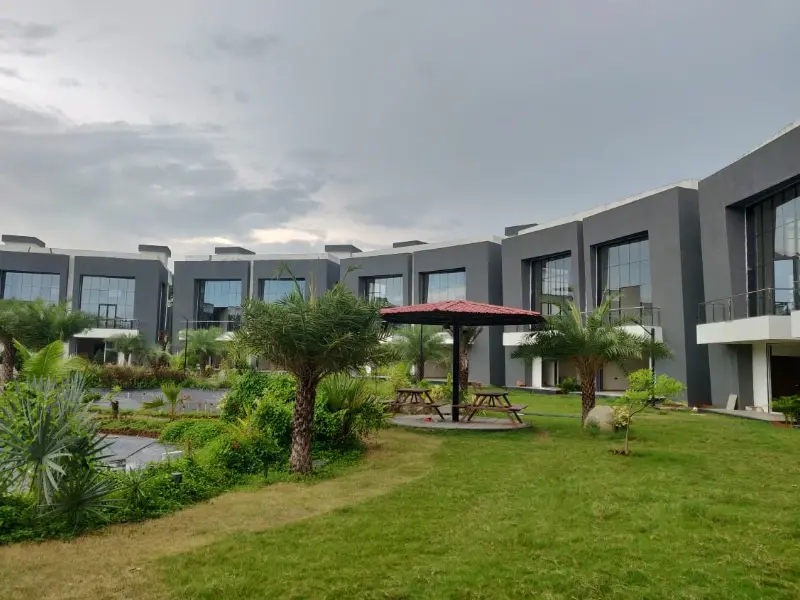
EDGE WATER
PLOT AREA FOR VILLA'S - 3250 SQ.FT. TO 3450 SQ. FT.
VILLA NO. 8, 10, 16 FOR RENT OR SALE
PLOT AREA FOR CONDO'S IS 970 SQ.FT
CONDO NO. 16, 20, 43 FOR RENT OR SELL
OPEN PLOT AREA
3250 SQ FT. TO 8710 SQ. FT.
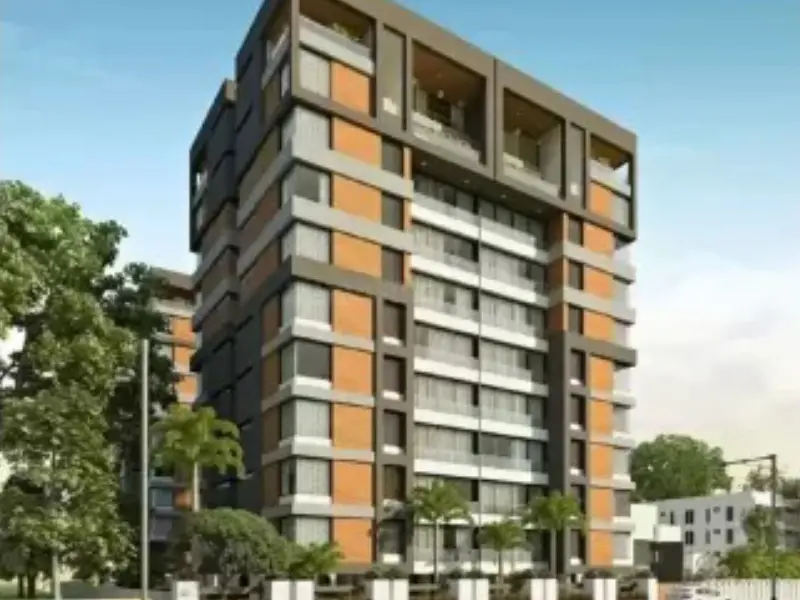
CASA CENTERAL
(SARABHAI CAMPUS ROAD)
CARPET AREA: 4200 SQ.FT. & SBU: 7200 SQ.FT.
TWELTH FLOOR
PENT HOUSE- FOR RENT OR SALE
THIRTEENTH FLOOR
PENT HOUSE- FOR RENT OR SALE
FORTHEENTH FLOOR
PENT HOUSE- FOR RENT OR SALE
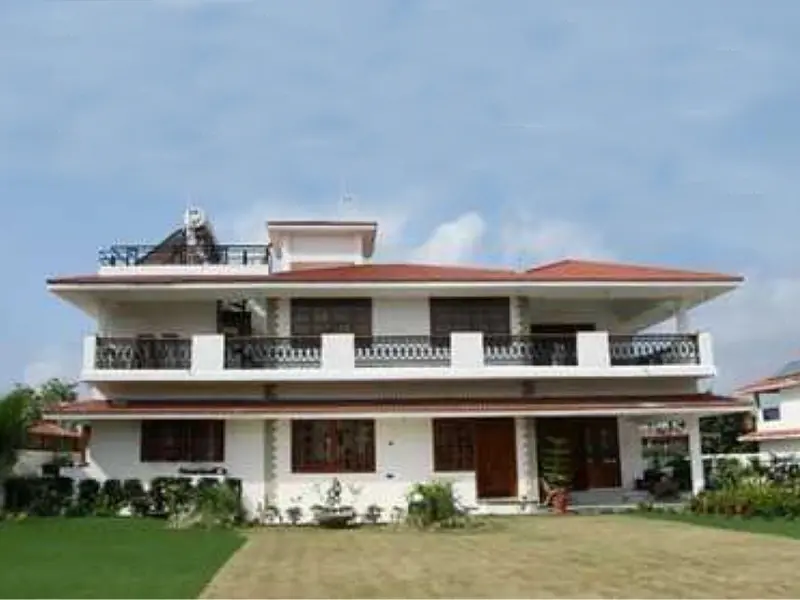
NILAMBER 4 BUNGLOWS
(VASNA BHAILI ROAD)
FOR RENT OR SALE
(CARPET AREA 3450 SQ.FT.)

MEERAJ COMMERCIAL HUB
(NATU BHAI CIRCLE RACE COURSE)
FIRST FLOOR
FOR RENT OR SALE (CARPET AREA 4200 SQ.FT. AND SBU: 7200 SQ.FT.)
Redevelopment Form
NRI Guidelines
Lilleria Group is Vadodara's premier real estate developer providing comprehensive residential and office space solutions across real estate categories. Headquartered in Vadodara, the group has consistently delivered luxury lifestyles through innovative solutions, not just by building structures but by building better lives. Lilleria Group collaborates with leading professionals and suppliers for facilities management, to deliver excellence in every aspect of development. We understand the requirements of our NRI clients and provide real estate solutions which fit their needs.
Definition of an NRI
An Indian Citizen who stays abroad for employment / carrying on business or vacation outside India or stays abroad under circumstances indicating an intention for an uncertain duration of stay abroad is a non-resident (Persons posted in U.N. organizations and officials deputed abroad by Central/ State Government and Public Sector Undertakings on temporary assignments are also treated as non-resident). Non-resident foreign citizens of Indian Origin are treated on par with non-resident Indian citizens.
Who is a PIO?
A person of Indian origin means an individual (not being a citizen of Pakistan or Bangladesh or Sri Lanka or Afghanistan or China or Iran or Nepal or Bhutan) who
- Holds an Indian Passport at any time, OR
- Who or whose father or paternal grandfather was a citizen of India by virtue of the Constitution of India or the Citizenship Act, 1955
For Investment in immovable properties
A foreign citizen (other than a citizen of Pakistan, Bangladesh, Afghanistan, Bhutan, Sri Lanka or Nepal) is deemed to be of Indian origin if,
- He holds an Indian passport at any time, OR
- He or his father or paternal grand-father was a citizen of India by virtue of the Constitution of India or the Citizenship Act,1955 ( 57 of 1955)
Additional Details
Acquisition and Transfer of Immovable Property in India by a person resident outside India. These FAQ's have been prepared in order to address various issues relating to acquisition and transfer of immovable property in India by a person residing outside India under the provisions of the Foreign Exchange Management Act, 1999. These FAQs seek to cover the broad spectrum of issues relating to acquisition and transfer of immovable property in India by a non-resident Indian (NRI) or a foreign national of Indian origin (PIO) or a foreign national of non-Indian origin as also by a person residing in India who is not a citizen of India
Can NRI's sell the properties they hold in India without Reserve Bank's Permission?
Yes
Can NRI's Acquire or Dispose residential property by way of gift?
Yes, the Reserve Bank has granted general permission to NRIs to acquire or dispose of NRI India Properties by way of gift from or to a relative who may be an Indian citizen or a person of Indian origin (PIO) whether resident in India or not.
Can NRI's Acquire Commercial Properties in India ?
Yes, under the general permission granted by the Reserve Bank, property other than agricultural land / farm house / plantation property can be acquired by NRIs provided the purchase consideration is met either out of inward remittances in foreign exchange through normal banking channels or out of funds from the purchaser's NRE/FCNR accounts maintained with banks in India and a declaration is submitted to the Central Office of Reserve Bank in form IPI 7 within a period of 90 days from the date of purchase of the property/final payment of purchase consideration.
Can NRI's obtain loans for acquisition of a House / Flat for Residential purpose from Financial Institutions providing housing finance?
The Reserve Bank has granted some general permission to certain financial institutions providing housing finance, e.g. HDFC, LIC Housing Finance Ltd., etc. and authorized dealers to grant housing loans to NRI nationals for acquisition of a NRI house/flat for self-occupation subject to certain conditions. Criteria regarding the purpose of the loan, margin money and the quantum of loan will be at par with those applicable to resident Indians. Repayment of the loan should be made within a period not exceeding 15 years, out of inward remittance through banking channels or out of funds held in the investors' NRE/FCNR/NRO accounts.
For NRI
According to the Foreign Exchange Management Act (FEMA) of 1999, an Indian Citizen who stays abroad for employment / business or stays outside the country for an indefinite period of time is considered to be an NRI. (Persons Posted in U.N. organisations and official deputed abroad by Central/State Governments and Public Sector undertakings on temporary assignments are also treated as nonresidents). Non-resident foreign citizens of Indian Origin are treated on par with non- resident Indian citizen (NRIs).
Any person who was born an Indian Citizen, but over time has chosen the citizenship of another country is considered a Person of Indian Origin (PIO).
Yes! The Reserve Bank of India has clearly granted permission to all Non Resident Indian's (NRIs) & Foreign Citizens of Indian origin (PIOs) to acquire & dispose immovable property in India, be it Residential or Commercial Property. However the RBI has a restriction on the purchase of Agricultural Land / Plantation Property or Farmhouses in India.
Any NRI or PIO interested in the purchase of Agricultural Land / Plantation Property or Farmhouses in India would have to send a formal request for the same to The Chief General Manager, Reserve Bank of India, Central Office Exchange Control Department, Foreign Investment Division (III), Mumbai 400 001.
No! NRIs and PIOs do not require the permission of the RBI in order to transfer immovable property to any Indian Citizen, NRI or PIO.
Yes! There is no clause by the RBI, which restricts an NRI or PIO to rent the properties acquired by them. The amount received from rentals can also be repatriated back to the country they are residing in, without any restriction.
Yes! The sale proceeds of immovable property can be remitted out of India to the home country of the NRI or PIO, up to the maximum limit of the consideration amount originally remitted from abroad to purchase the property. However, the property has to be sold after a period of three years, from the date of the final purchase deed or from the date of payment of final instalment of consideration amount, whichever is later. Additionally, the following points also need to be adhered to in this respect: i. The immovable property was acquired by the seller in accordance with the provisions of the Exchange Control Rules/Regulations/Laws in force at the time of acquisition, or the provisionsof the Regulations framed under the Foreign Exchange Management Act, 1999;
- The amount to be repatriated does not exceed
- The amount paid for acquisition of the immovable property in foreign exchange received through normal banking channels or out of funds held in foreign currency non-resident account(s) or
- The foreign currency equivalent, as on the date of payment, of the amount paid where such payment was made from the funds held in non-resident external account(s) for acquisition of the property; and
- In case of residential property, the repatriation of sale proceeds is restricted to not more than two such properties.
iii. Finally, application for the purpose of repatriation is required to be made to the Central Office of Reserve Bank within 90 days of the sales of property in F
Yes! NRIs can definitely appoint a Power of Attorney to complete all loan formalities towards the purchase of a property in India, considering the fact that an NRI wouldn't be in India for long periods. The stringent formalities followed by Indian banks, only means that the appointment of a Power of Attorney would be ideal.
It is advised that the Power of Attorney is preferably a Resident of India. Having said that, there would be certain procedures which have to be followed in order to execute the same:
- The execution of the power of attorney must be done on a stamp paper or plain paper, as the case may be in the country where the power of attorney is being executed
- The signatures of the executants have to be attested by an official of the Indian Embassy, Indian Consulate or Trade Commissioner, in the country where the executants reside
- The signature of the attorney should be verified in India by a Notary, his employer or his banker on a separate piece of paper which should be submitted to SHFL together with the Power of Attorney
The Reserve Bank of India has not fixed any restrictions on the purchase of Residential/Commercial properties for both Non Resident Indians (NRIs), as well as Foreign Citizens of Indian Origin (PIOs). However, the RBI has a restriction in the purchase of Agricultural Land / Plantation Property or Farmhouses in India.
We at Prestige have setup a team of qualified individuals specially trained on Foreign Investment policies, pertaining to Property. This team works round the clock, 24*7, so irrespective of your geo location you are just a call away. We have also set up a 24 hour hotline number, so if you prefer calling in rather than writing to us, our friendly representative would be more than happy to help you out with your query. This team is also updated on each property development at Prestige, so they would be able to assist NRI customers on project statuses, payment schedules, loan assistance, and so on.
Yes! Prestige could arrange site visits for the customer upon their arrival in India. However, Prestige has developed an eVisit platform that allows customers to drive to their Prestige Property, right from their browser. Upon clicking the eVisit link, the customer is virtually driven to the Prestige Property, so sitting in any part of the world, a customer still gets to see and experience all the development around their Prestige Property, helping in taking an informed decision. The eVisit link can be found on every project page or can be accessed from the footer menu of the site. In addition, Prestige regularly updates the Development Photographs section within each property, allowing customers sitting in any part of the world, to track the development progress of their Prestige property.
Yes! At Prestige we believe in associating with our customer for the long term, we have a dedicated team of professionals who help assist all Prestige Property Owners in renting or leasing their property. Fill out the Rent your Property form found to your left in the menu (within this NRI Section) and get started with the process immediately!
Yes! The Reserve Bank of India has not applied any restrictions on NRIs or PIOs to acquire or dispose residential/commercial property, by way of gifts to other Indian citizens, NRIs or PIOs, unless the immovable property is an Agricultural Land / Plantation Property or Farmhouse.
Yes! The RBI has granted permission to financial houses to provide loans to NRIs for the acquisition of house/flats for self occupation, subject to banking terms and conditions. Although, the repayment of the loan needs to be completed within a 15 year period, through inward remittances or out of the funds held by the investors in their respective NRE/NRO or FCNR Accounts.
Yes! An NRI can purchase a Prestige Property by means of borrowing money from a close relative outside India. However, the sum borrowed should not be in excess of US$250,000 or its equivalent, subject to the conditions that:
- The minimum maturity period of the loan is one year
- The loan is free of interest; and
- The amount of loan is received by inward remittance in free foreign exchange through normal banking channels or by debit to the NRE/FCNR account of the NRI
- According to the RBI guidelines a Close relative' means relative, as defined in Section 6 of the Companies Act, 1956 which is as under
- A person shall be deemed to be a relative of another if, and only if
- They are members of a Hindu undivided family; or
- They are husband and wife; or
- The one is related to the other in the manner indicated in Schedule IA
An NRI or PIO can get a Home Loan of up to 85% of the Total Consideration Value of the property.
There aren't any tax implications for NRIs for the purchase of properties in India, however any income earned from rental of a residential property would be taxable under House Property, in the Income Tax Act of 1961. Income earned out of rental of a commercial property would be taxable under Business Income in the Income Tax Act of 1961 & Income earned from the sale of a property is taxable under Capital Gains of the Income Tax Act of 1961.
For Loan Eligibility
Generally, following conditions must be fulfilled:
- Minimum age of applicant: 21 years
- Salaried or self-employed with regular income
You can apply for the Home Loan even before you have selected your property or before the start of construction. You will get in -principle approvals for the loan amount which will help you decide your budget and plan the purchase of house/flat. There are two stages in the housing loan process
- Sanction of the loan
- Disbursement of the loan as per the progress of construction of the property
Generally
- All co-owners need to be co-applicants
- All co-applicants need not be co-owners
Yes. Housing loans can be given to an individual provided he has the capacity to repay. The loans can be for same property (repairs/extension etc) or for different properties.
The NMI is income from all sources of a salaried individual It Includes:
- The NMI from the salary of applicant
- The NMI from the salary of co-applicant/spouse
- The income from other sources like Rent from the existing/proposed flat, Agricultural income, Income from tuitions, other business etc
In case of self employed/professional the NMI is Annual Income after deduction of income tax divided by 12 (as per I-T return) plus other income as above.
EMI - Equated Monthly Installment. This is the amount paid monthly by a borrower to the bank or any other lender. It basically has two components -
- The portion of the principal amount
- The interest portion for that month
Pre-EMI – Prior to final disbursement of the Housing Loan, you pay interest on the portion of the loan disbursed. This interest is called pre-EMI interest. It is payable monthly/quarterly up to the date of commencement of EMI. Can the EMI be reset during tenure of loan? Can I make Prepayment towards loan closure? Yes. If there is substantial revision in the rate of interest, the facility of refixing of EMI can be granted to a housing loan account. You can pay extra money (more than your EMI) any amount, anytime ahead of repayment schedule to prepay the loan.
Floating Rate - A loan where the interest rate is not fixed is referred to either as a floating interest rate loan, variable interest rate loan or adjustable rate loan, It is linked to a specific index or margin e.g. Above/below Medium Term Prime Lending rate (MTPLR) Fixed Rate - It is a loan where the interest rate is fixed during the life / certain tenure of the loan.
You will be eligible to claim both the interest and principal components of your repayment during the year.
- Interest can be claimed as a deduction under Section 24. You can claim up to Rs. 150,000 or the actual interest repaid whichever is lower. (You can claim this interest only when you are in possession of the house)
- Principal can be claimed up to the maximum of Rs. 100,000 under Section 80C. This is subject to the maximum level of Rs 100,000 across all 80C investments
- You will need to show the statement provided by the lender showing the repayment for the year as well as the interest & principal components of the same
